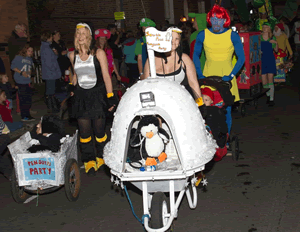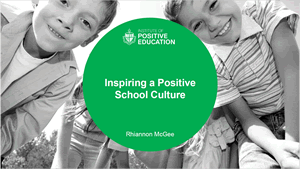 Acts of kindness pave an enduring path to wellbeing, good health and long-term popularity.
Acts of kindness pave an enduring path to wellbeing, good health and long-term popularity.
I left England to live in Australia when I was in my early thirties. Since then I have married, had three children and made some very beautiful Australian friends. I have also managed to stay in touch with some amazing people living back in England.
My family and I recently had the opportunity to go back to England and catch up with two of these treasured old friends for a holiday. A family living in the village of Pewsey in Wiltshire. Wiltshire is a county known for it’s pretty villages, white chalk horses in the hillsides and the world famous Stonehenge.
During our stay I couldn’t help but comment on a large model of a red polystyrene plane, and a glittering golden model of a large pyramid in my friends’ garden… I also spotted a polystyrene ‘Roman’ shield near the back door and a very strange green ‘alien head’ just inside the back porch. My friends delighted in telling me that all of these objects had been made as adornments for a wheelbarrow. Every year their village holds an annual wheel barrow race in which groups of enthusiastic locals are encouraged to turn up in fancy dress with a themed barrow in tow… Groups of friends and neighbours spend weeks helping each other transform wheelbarrows into ‘mini floats’ for this much anticipated event. The race is not about impressing anyone, nor does it feature any sort of competition (active racing is not encouraged). It is a crazy and wonderful event focused on mutual support, care, consideration and kindness. The annual village wheelbarrow race is taken very seriously indeed. Everyone involved is deeply invested in nurturing a cohesive and supportive community.
The value of friendship and the importance of establishing positive relationships with others is undeniable. Positive social support is arguably the biggest buffer we can have against mental health issues and one of the most significant ingredients of flourishing. No matter what we do in life, our world is built upon our relationships with others. No matter what we have done, the value of our experiences are magnified in the sharing of our memories. I have seen socially competent individuals excel, despite a lack of academic achievements. Similarly, anyone who is not socially competent will eventually hit a very hard career ceiling, no matter how golden their academic record looks on paper.
Many Australian schools and families spend considerable time and effort in providing opportunities for young people to develop friendships. They encourage them to reap the benefits of feeling part of a positive peer group. In fact, many school wellbeing programs focus on the importance of developing assertive social behaviour, effective communication skills and tolerance.
However, no matter how socially confident we are, or how articulate and socially aware, arguably the most powerful thing we can do to develop meaningful relationships is learn to be kind.
In a society that is increasingly concerned with appearances, it can be easy to assume that making a good impression is all about being impressive. Hence, we hear people, young and old, telling others about their achievements, their acquisitions and their ambitions – all in an attempt to impress and be liked…
In reality, those who attempt to sell themselves to others in this way, often end up confused about their lack of reciprocated social invitations. At Positive Schools this year, John Marsden told a captivated audience that Australians do not really like to chop down tall poppies. They have no problem or issue with success; rather, they have a problem with those that flaunt success as if it somehow makes them a better human being. Trying to impress others is a sure way to irritate.
In contrast, research has shown that we are significantly more likely to like people who put their own accomplishments aside, and pay attention to the needs of others. We like those who are kind to us, not those who attempt to impress us.
Dr Patty O’Grady, an expert in neuroscience, emotional learning, and positive psychology, is one of many who suggest that kindness needs to actively be taught to kids. Patty has found that acts of kindness and ‘being kind’ result in physical and emotional benefits for children as well as improved positive relationships. Kindness has been linked to greater wellbeing, greater social acceptance, greater concentration and even improved academic results. As author Lisa Currie says in her article on ‘why kindness should be taught in schools’, kindness helps children feel good. It increases serotonin, which plays an important part in learning, memory, mood, sleep, health and digestion. Having a positive outlook allows children to have greater attention spans and enables more creative thinking to produce better results at school.
Moreover, researchers Shanetia Clark and Barbara Marinak, have found that teaching kindness and compassion in schools can significantly reduce aggression and bullying. Kindness and compassion contribute to positive social behavior and a sense of belonging, both essential for a cohesive classroom experience. Similarly, other researchers have found that by encouraging children to conduct regular acts of kindness, they become happier and better liked by their peers.
Encourage your class to discuss the benefits of kind acts and being kind, and to better understand the power of kindness in increasing wellbeing, popularity and a sense of belonging.
The quirky wheelbarrow race in my friends’ village involves neighbours coming together and supporting each other in a non-competitive and powerful way. They help each other construct wonderful works of temporary art. They then admire each others’ efforts with good nature, good humour and lots of kindness.
Dr Helen Street has an extensive background in social Psychology with a passion for education. She presents her work in books, articles and in seminars and workshops for schools. Her latest book ‘Better Than OK – helping young people to flourish at school and beyond’ is coedited with Neil Porter and available online and from bookshops Australia wide.


